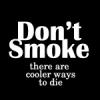Search the Community
Showing results for tags 'hygiene'.
-
This afternoon I was at Redhill market and saw some pigeons (4 of them specifically) actually flew right into the hawker centre, feeding on crumbs on the floor (see picture). WTF! What goes in, must come out, right? I shudder to think of the food I had just consume might have been contaminated! Not that I am a hygiene freak, or having too high expectations of a hawker centre, but still...
-
Public toilets are getting convenient and hygienic in many public areas like shopping malls, schools, community centers, and even parks. Everytime after washing our hands in the public toilets, there will be choices of how to dry your wet hands fitted in the toilets, either paper towels or hand dryers or both. http://theconversation.com/the-great-bathroom-debate-paper-towel-or-hand-dryer-51197 Which one would you normally prefer to use? PAPER TOWELS OR HOT AIR DRYERS - WHICH IS BETTER & WHY? http://info.debgroup.com/blog/bid/297155/Paper-Towels-or-Hot-Air-Dryers-Which-is-Better-Why We all know 80% of common infectious diseases are spread by our hands and effective hand washingremains our best defense - but what about hand drying? Are all methods created equal? A recent hygienic efficacy study of different hand drying methods, led by researches at Queensland University in Brisbane, Australia put this question to the test. Hand drying after all is an essential part of the hand washing process, as the spread of bacteria is more likely to occur with wet skin than from dry skin. Scientists reviewed twelve independent studies comparing paper towels, cloth towels, and hot air dryers. Hand drying effectiveness included, "the speed of drying, degree of dryness, effective removal of bacteria, and prevention of cross-contamination." Before you read the results of this latest study, please cast your vote on which drying method is more effective. Please also use the comments section below to share your feedback and insight about other studies and best practice recommendations. The study revealed, "from a hygiene viewpoint, paper towels are superior to electronic air dryers" and "drying hands thoroughly with single-use, disposable paper towels is the preferred method of hand drying." It concluded by recommending, "The provision of paper towels should be considered as a means of improving hand hygiene adherence." When it came to drying efficiency for example, the results indicated that, "residual water was more efficiently removed from the hands by cloth or paper towels." In fact, with just 10 seconds of drying with a single serve towel, the residual water on the hands was reduced to just 4% and dropped to just 1% with 15 seconds of drying. Air dryers were much slower and required 45 seconds to reduce the residual water to 3%. The bottom line, paper towels can generally achieve 90% or more dryness with normal use. The effectiveness in the removal of bacteria was measured by assessing the, "changes in the number of bacteria on the hands before and after the use of paper towels, hot air dryer, or jet air dryer. Finger pads were sampled by contact plates, and the palms were sampled by swabbing and inoculation of agar plates." They found that paper towels, "reduced the numbers of all types of bacteria on the hands" and hot air dryers were the least effective method of removing bacteria from washed hands. Many studies have found that friction is the key component in hand drying as it helps to remove contamination. Micobiological testing of the paper towels after use, demonstrates that many bacteria are transferred from the hands to the paper towels." Even more terrifying for all of us is the fact that every time a toilet is flushed, "a fine aerosol mist can be sprayed into the air. This mist may contain may types of fecal bacteria that can cause diseases. Air movement can encourage the dispersal and transmission of bacteria and increase the chance of cross-contamination. Used air dryers in washrooms are often contaminated and can emit bacteria in their air flow. So there is a potential risk of persons standing in front of air dryers acquiring the bacteria being dispersed into the air current towards them. The bacteria can then be inhaled or can be deposited on the person's body or clothes, thus making him/her a potential mobile source of infection." No such spread was seen with either paper or cloth towels. The review suggests that ultimately paper towels are the best option for settings where infection prevention is critical. However you may have no choice, which is often the case in public or workplace washrooms in which only hot air dryers are provided. The study did reveal that users have a strong preference for using paper towels and that "hand hygiene adherence would possibly decrease if paper towels are not available in washrooms." Also, air dryers that are used in many washrooms allow for only one user at a time and each person could take up to one minute to dry their hands. This is not convenient and often leads to avoidance or incomplete drying. In several studies, on average people spent just 22.5 seconds drying hands, and 41% wiped their hands unhygienically on clothes. In instances where paper towels are not available remember to always follow recommended hand washing technique, take extra time to dry your hands with an air dryers and consider carrying a personal size bottle of alcohol hand sanitizer as an added level of defense.
- 41 replies
-
Poor hygiene at 5-star hotels in China: Toilet brush used to clean cups https://youtu.be/F_B7E_eE7Zc Three five-star hotels in Harbin, Heilongjiang province, were punished on Wednesday after authorities found poor hygiene conditions in their guest rooms. The city's health and family planning commission has not disclosed what penalties were given to the properties, which are operated by Kempinski, Shangri-La and Sheraton. It comes after undercover video footage emerged online on Tuesday that showed cleaners at the hotels using the same brushes to wipe the toilets, bathtubs, sinks and other surfaces, sparking public concern over cleanliness. Footage recorded at the Kempinski and Shangri-La properties even showed workers using the same brush to wipe drinking water cups and then drying them with used bath towels. All three luxury hotels were accused of failing to change bath towels, bed sheets and pillow cases for new guests, despite charging from about 800 yuan to 2,800 yuan (S$163 to S$572) for a room per night. Shortly after the video began to spread online, inspectors from the health commission, tourism office, market supervision department, food and drug administration, and legislative affairs office descended on the properties to collect samples for testing, according to the city government. The results of these tests confirmed that the hotels had hygiene problems. "We feel sorry to learn about the substandard conditions found at our hotel," the Kempinski Harbin said in a post on Sina Weibo on Tuesday. "We have been working on providing our guests a friendly and safe environment with strict policies. We will co-operate with the investigation and strengthen measures to avoid similar problems." However, the case has again affected people's faith in the quality of five-star accommodation in China. Undercover footage exposed similar hygiene issues at five high-end hotels in Beijing in September. "I have clients in different cities, so I frequently travel for business," said Sun Chang, 36, the manager of an advertising agency in Beijing. "I've heard such things happen in some midrange hotels, so I usually choose well-known five-star hotels during my trips. I didn't imagine the problems are just as serious there. "I'm considering taking my own sheets, sleeping bags, kettles and bathrobes on my next trip." Harbin has now launched a citywide inspection of all hotels. "It is really difficult to monitor cleaners in the hotel rooms without cameras being installed," Wu Ben, an associate professor of hotel management at Shanghai's Fudan University, told Caixin magazine on Tuesday. "Without the proper detection equipment, one is unlikely to notice dirty bedding and poorly cleaned toilet seats." http://www.asiaone.com/china/poor-hygiene-5-star-hotels-china-same-brush-used-clean-toilets-and-cups
-
the only food court that i will never step in poor system, cannot attract good food store operator, poor hygiene (but i duno why most hospital appoint them as anchor tenant)..... Mercs posted this
-
Maybe also pools in private clubs. According to surveys, many swimmers/users pee in the pool, and many also don't shower before jumping into the water. Sometimes other swimmers kena red eye after using the pool because of contact with the pool water mixed with urine, sweat, makeup, etc. How to prevent such unhygienic behavior? Put auto showers at the gates to the pool? Compulsory peeing in the toilet just before the gates, at least reduce the amount of pee going into the pool water later?
-
According to a UK survey done at the request of home store B&Q, around 700 harmful bugs lurk in the interior of a car, and specifically on the steering wheel, gear stick and back seats. The study also revealed that 42 percent of motorists regularly eat meals while driving. According to the study, only a third of the people questioned admitted cleaning the inside of their cars once a year, while ten percent said they never wiped down surfaces or vacuumed their cars.
- 1 comment
-
- advice
- other news
- (and 6 more)







